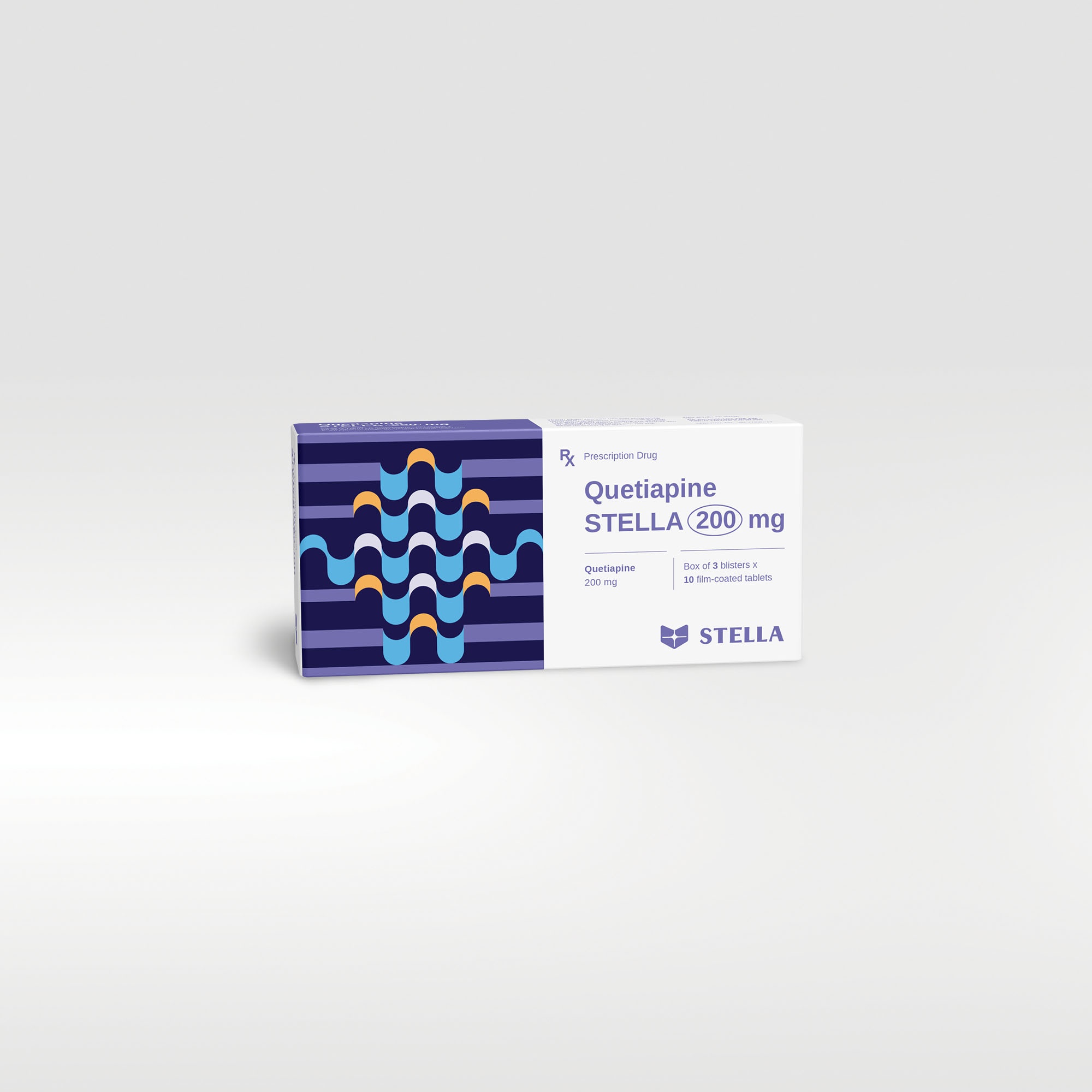Quetiapine STELLA 200 mg should be given with caution when used for:
- Patients with a history of suicide related events, or those exhibiting a significant degree of suicidal ideation prior to commencement of treatment should receive careful monitoring during treatment.
- Patients with known cardiovascular disease, cerebrovascular disease, or other conditions predisposing to hypotension.
- Patients with a history of seizures.
- Patients with diabetes mellitus or with risk factors for diabetes mellitus should be monitored regularly for worsening of glucose control. Weight should be monitored regularly.
- Patients at risk for aspiration pneumonia.
- Patients with cardiovascular disease or family history of QT prolongation. Also, caution should be exercised when quetiapine is prescribed either with medicines known to increase QT interval, or with concomitant neuroleptics, especially in the elderly, in patients with congenital long QT syndrome, congestive heart failure, heart hypertrophy, hypokalaemia or hypomagnesaemia.
Treatment with Quetiapine STELLA 200 mg should be discontinued in case:
- If signs and symptoms of tardive dyskinesia appear, dose reduction or discontinuation of quetiapine should be considered. The symptoms of tardive dyskinesia can worsen or even arise after discontinuation of treatment.
- Neuroleptic malignant syndrome may occur with clinical manifestations including hyperthermia, altered mental status, muscular rigidity, autonomic instability and increased creatine phosphokinase.
- In patients with a neutrophil count < 1.0 x 109/L.
- Jaundice develops.
Moreover, the following reactions should be taken into account:
- Extrapyramidal symptoms.
- Orthostatic hypotension, somnolence and dizziness has onset usually during the initial dose-titration period. This could increase the occurrence of accidental injury (fall), especially in the elderly population.
- Increases in triglycerides, LDL- and total cholesterol, decreases in HDL-cholesterol have been observed in clinical trials with quetiapine. Lipid changes should be managed as clinically appropriate.
- Cases of venous thromboembolism (VTE) have been reported with antipsychotic drugs.
Gradual withdrawal over a period of at least one to two weeks is advisable.
Elderly patients with dementia-related psychosis: Not use.
Patients with rare hereditary problems of galactose intolerance, total lactase deficiency or glucose-galactose malabsorption should not take Quetiapine STELLA 200 mg.
Quetiapine STELLA 200 mg should only be used during pregnancy if the benefits justify the potential risks. Avoid breast feeding while taking Quetiapine STELLA 200 mg.
Patients should be advised not to drive or operate machinery while using Quetiapine STELLA 200 mg.









